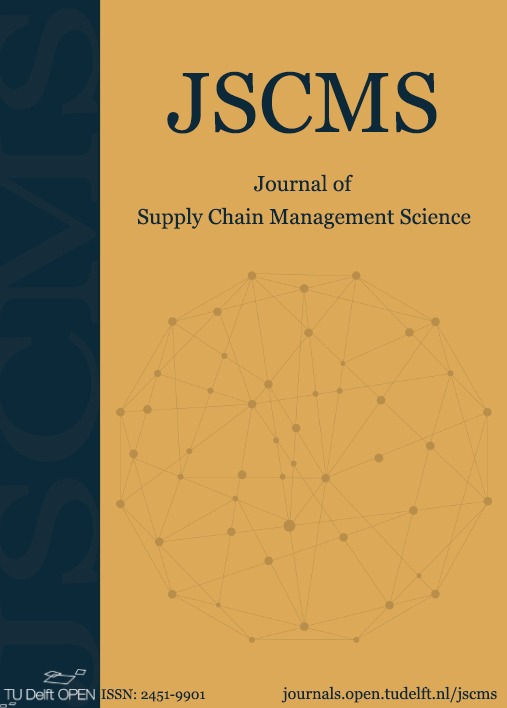Behavioral theories in inventory management and forecasting: Driving supply chain resilience
DOI:
https://doi.org/10.59490/jscms.2024.7758Keywords:
Behavioral theories, Resilience, Bullwhip effect, Supply chains, Technological advancements, PerformanceAbstract
Supply chains play an essential role in ensuring operational efficiency and economic stability, yet they face challenges such as the "bullwhip effect," which amplifies demand fluctuations. Addressing these issues requires innovative strategies that integrate behavioral theories with technological advancements. This systematic review evaluates various approaches and synthesizes them into an Integrated Theoretical Framework for Enhancing Supply Chain Performance. Following PRISMA guidelines, peer-reviewed articles published from 2010 to 2024 were analyzed, focusing on behavioral theories in supply chain management. Key findings highlight that integrating theories, such as the Theory of Planned Behavior (TPB), improves demand forecasting accuracy and reduces the bullwhip effect by emphasizing behavioral intentions and social influences. Modern technologies, including AI and IoT, enhance real-time data handling and decision-making. This framework merges psychological insights and technology to improve supply chain resilience and efficiency.
Downloads
Published
How to Cite
Issue
Section
License
Copyright (c) 2024 Journal of Supply Chain Management Science

This work is licensed under a Creative Commons Attribution 4.0 International License.
JSCMS is licensed under a Creative Commons Attribution 4.0 International (CC BY 4.0) licence. The license means that anyone is free to share (to copy, distribute, and transmit the work), to remix (to adapt the work) under the following conditions:
- The original authors must be given credit
- For any reuse or distribution, it must be made clear to others what the license terms of this work are
- Any of these conditions can be waived if the copyright holders give permission
- Nothing in this license impairs or restricts the author's moral rights


